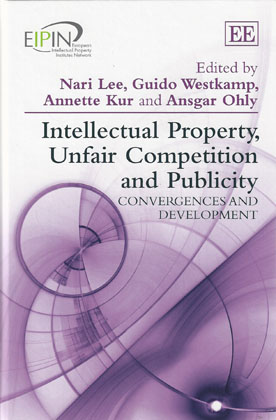
Dealing with rights and developments at the margin of classic intellectual property, this fascinating book explores emerging types of regulations and how existing IP regimes inform and influence the judicial and legislative creation of “substitute” IP rights.
The editors have carefully structured the book to ensure that there is a thorough analysis of how commercial values arising at the margins of classic IP rights are regulated. As new regimes of regulations emerge, the question of how existing IP regimes inform and influence the judicial and legislative creation of “substitute” intellectual property rights is explored. By doing this, the contributors interrogate the very boundaries that constitute what IP rights traditionally protect and cover.
Should all investments in anything intangible and “intellectual” – such as product shapes, personality, data and organization of an event - be protected as property? Should there be qualitative differences among the types of investments and achievements? These are just some of the interesting questions addressed in this important new book.
Academics, policymakers, lawyers and many others concerned with IP rights, will benefit from the extensive and thoughtful discussion presented in this work.